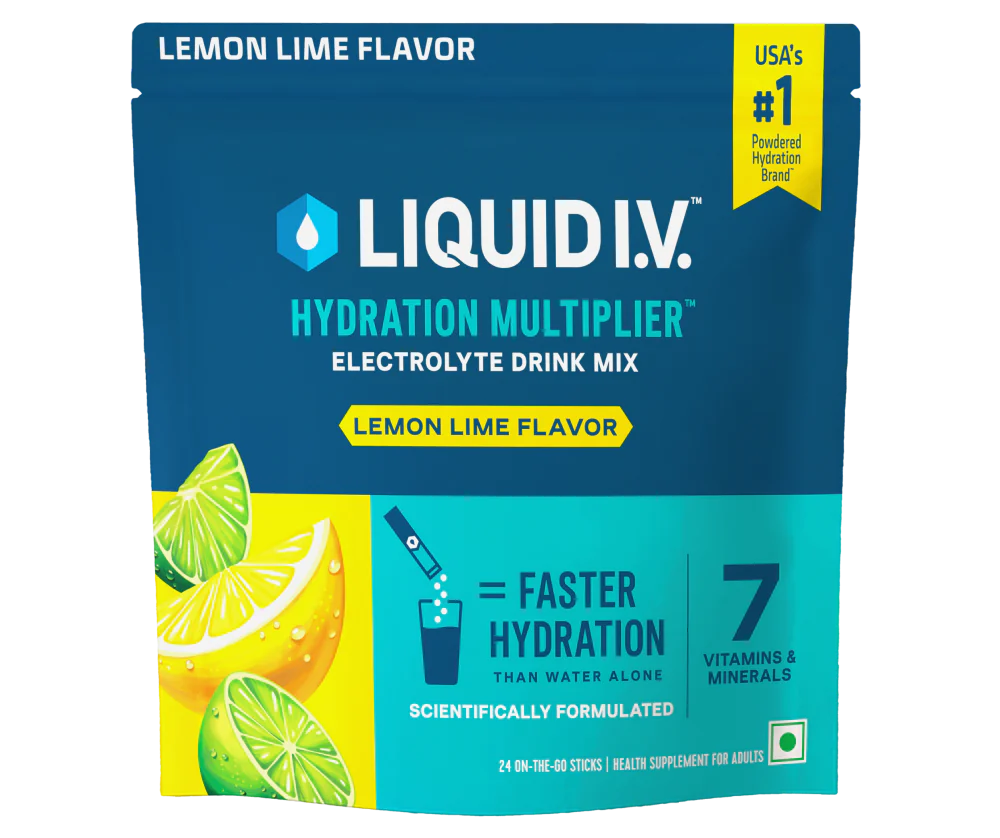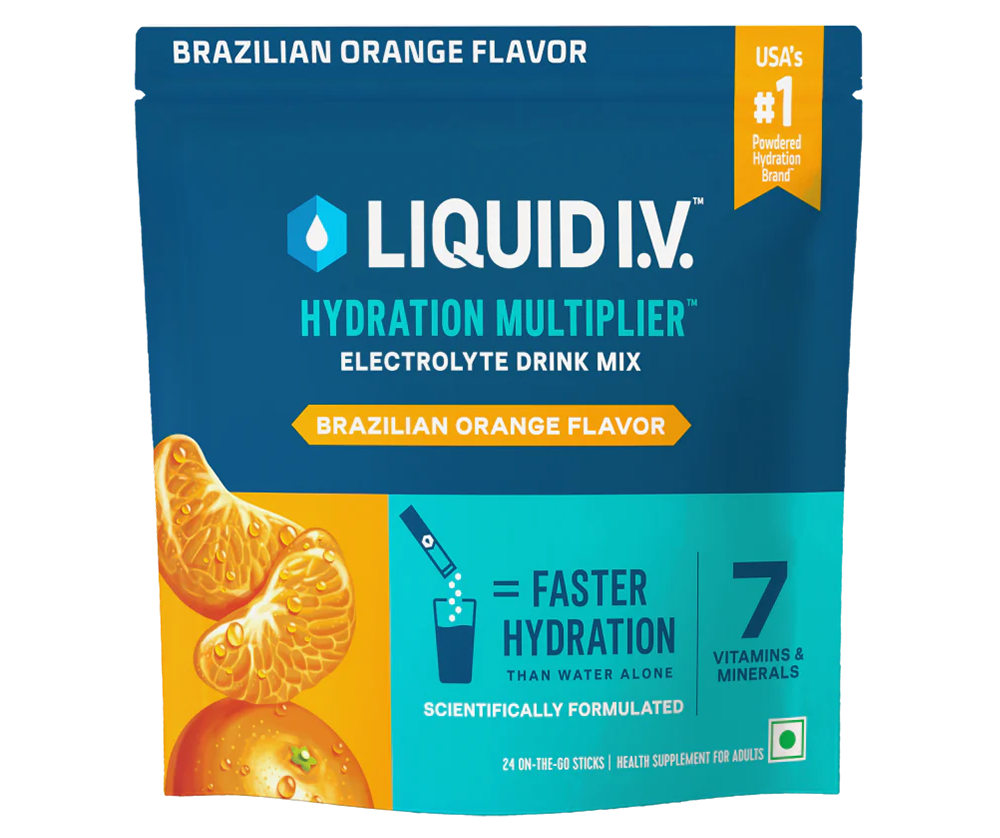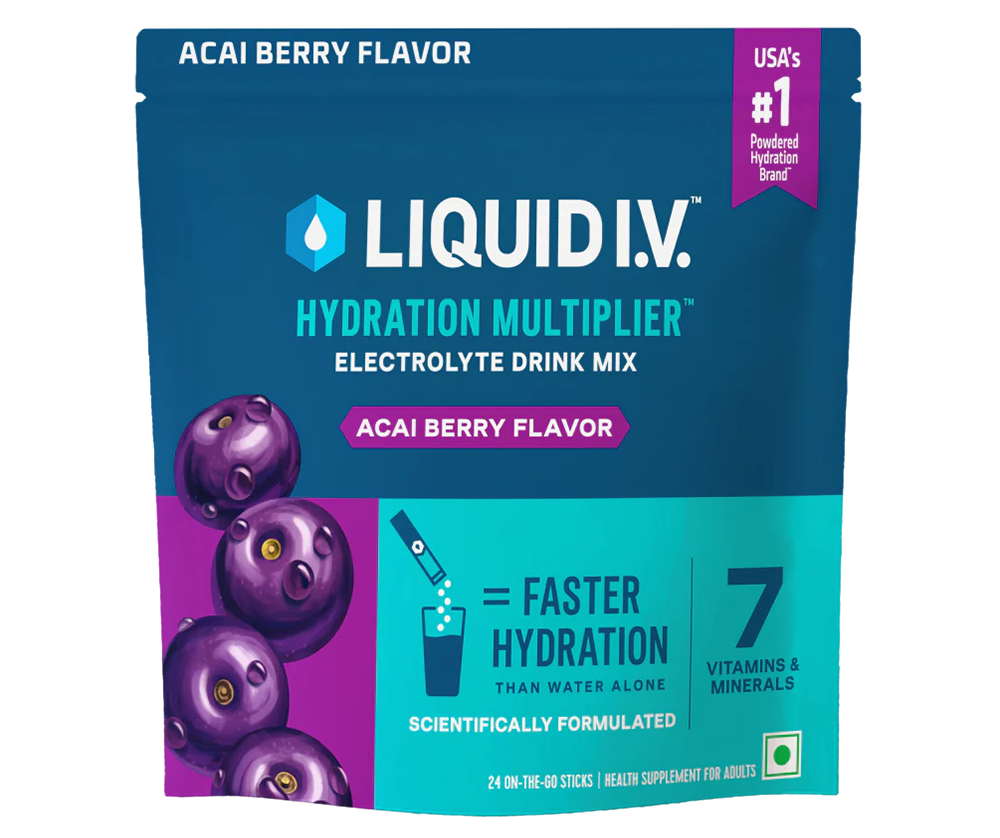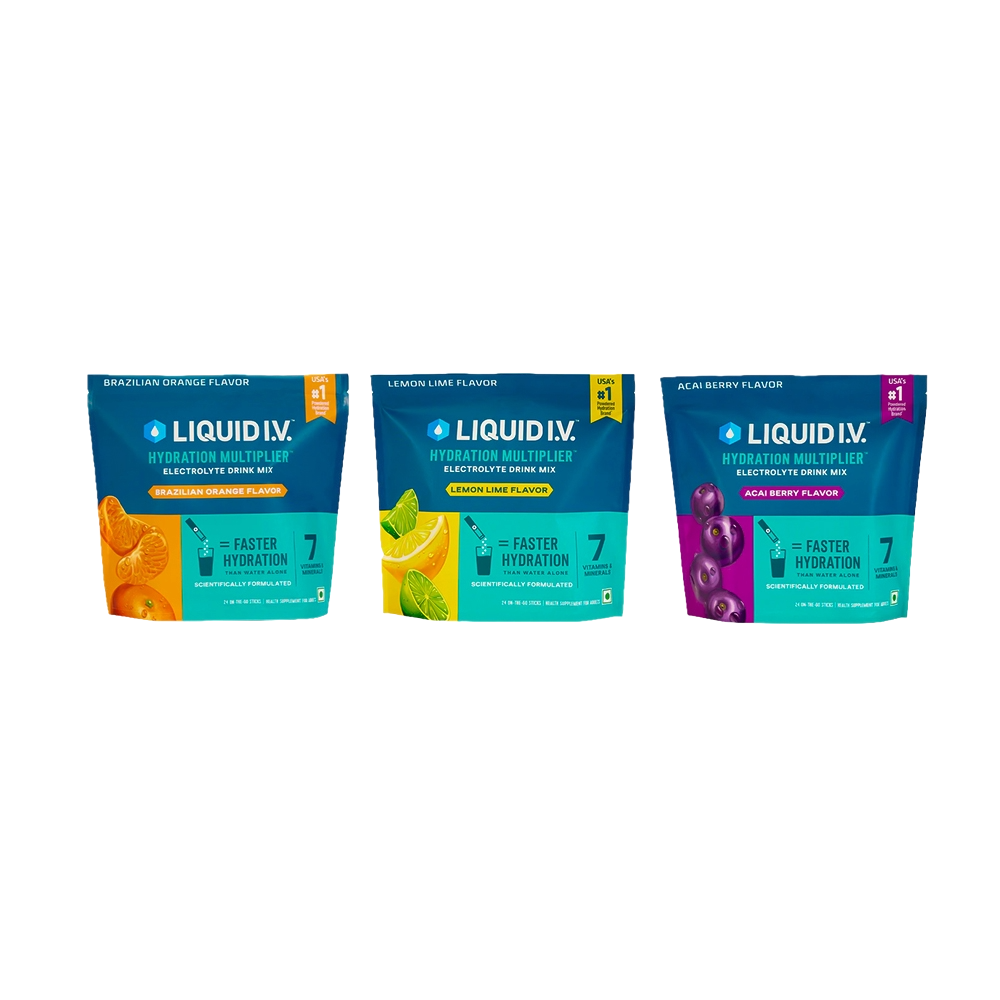Caffeine: What It Is, Benefits and Side Effects
Caffeine is basically the OG life hack - your go-to boost when you need to wake up, power through a study session, or survive an all-nighter. It's the most popular ingredient, sneaking its way into coffee, energy drinks and even chocolate. But caffeine isn’t just about keeping your eyelids open- it’s a whole science. It works by blocking adenosine, a chemical that makes you feel tired, so your brain stays alert and ready to go. Plus, it can help with focus, metabolism, and even exercise performance.(1)
Of course, too much caffeine can turn your vibe from energized to jittery fast. Sleep struggles, headaches, and even dependency can creep in if you overdo it. That’s why knowing your limits is key. This deep dive is all about the chemistry, benefits, and side effects of caffeine- so you can maximize the perks without a crash. Time to unlock your caffeine knowledge.
What is Caffeine?
Caffeine is a natural powerhouse. Found in multiple plants, it works as a mind stimulant, giving you that much-needed energy kick.
Here’s how it does its thing: Once you sip on that coffee, caffeine hits your bloodstream fast, giving you a near instant kick. It travels everywhere - including your brain- where it blocks adenosine, the chemical that normally makes you feel sleepy. This trick is what keeps you awake, focused, and ready to go. (1)
How Does Caffeine Work?
Caffeine is basically a sleep blocker in disguise. Normally, your brain builds up adenosine throughout the day, telling your body to chill and get ready for sleep. But caffeine? It swoops in, hijacks those receptors and blocks adenosine. (1)
Since adenosine’s usual "slow down" signal gets interrupted, your brain stays fired up, leading to a boost in other chemicals like dopamine - the chemicals responsible for focus, and alertness. (2,3)
Basically, caffeine is like hitting the pause button on sleepiness, keeping you in go-mode until it wears off. Just don’t overdo it, or you’ll be stuck in a jittery overdrive. Balance is everything!
What Foods and Drinks Contain Caffeine?
Caffeine is sneaky- it’s way more than just coffee. If you’re trying to keep track of your intake, here are some places it hides:
- Coffee: The #1 caffeine source for most people. Levels vary based on the bean, roast, brewing method, and serving size.
- Tea: Black, green, oolong, and white teas all contain caffeine- just less than coffee. Herbal teas, though? Usually caffeine-free.
- Energy Drinks: These pack serious caffeine, often mixed with other stimulants for extra buzz.
- Soft Drinks: Some sodas, especially colas can have caffeine. Check the label!
- Chocolate: Cocoa beans naturally have caffeine, meaning dark chocolate has more than milk chocolate.
Keeping tabs on your caffeine isn’t just about how much coffee you drink - chocolate, tea, and even soda can sneakily add to your daily dose. (4) Stay mindful, so you don’t end up accidentally overdoing it.
Benefits of Caffeine
Caffeine isn’t just your go-to wake-up call- it’s got some surprising perks backed by science. Here’s how it can benefit your body beyond just keeping you alert:
- Weight Loss: While caffeine won’t magically melt fat, it does boost metabolism and help your body burn calories more efficiently. It works best when paired with solid nutrition and exercise. (5)
- Alertness: The reason caffeine is an absolute lifesaver for all-nighters? It blocks adenosine (the sleepy chemical), making you feel more awake, sharp, and ready to tackle whatever’s in front of you. (1) Whether it’s a tough work shift, a study marathon, or just beating that midday slump, caffeine has your back.
- Sports Performance: Caffeine is a low-key performance booster- it reduces perceived effort, making workouts feel easier while also delaying fatigue. Runners, lifters, cyclists-this one is for you. (6)
- Brain Function/Health: Studies suggest that caffeine might help protect your brain. It has antioxidant properties that keep brain cells functioning well. (7)
So yeah, caffeine isn’t just about keeping your eyes open, it’s got legit benefits for your body. As always, moderation is key!
Side Effects of Caffeine Consumption
Caffeine may be your go-to energy boost, but too much can flip off the script and bring some pretty annoying side effects. (1) Here’s where overdoing it can mess with you:
- Mood Swings: While caffeine can lift your mood, too much can do the opposite- jitters, restlessness if you over do it. Plus, the dreaded crash that hits when it wears off can leave you feeling drained .
- Sleep Struggles/ Insomnia: If you’re tossing and turning at night, caffeine might be the culprit. It blocks adenosine, the chemical that makes you sleepy. Avoid caffeine at least 6-8 hours before bed if you want quality sleep.
- Headaches: Caffeine can help with headaches, but it can also cause them- especially if it leads to dehydration. (8)
The trick to avoid these is knowing your limits -moderation means you get the benefits without the downsides
Conclusion
Caffeine is basically a powerhouse that can sharpen focus & boost workouts. But it’s got a flip side, too. Overdo it, and suddenly you’re battling sleeplessness.
The trick? Balance. Knowing where caffeine hides (because it’s way more than just coffee), understanding how it works, and paying attention to how your body reacts can help you get the benefits without the downsides.
FAQs
-
Is it better to avoid caffeine?
Not necessarily. For most healthy adults, moderate caffeine consumption (up to 400 mg per day, roughly 4 cups of coffee) is generally considered safe. (2) However, if you are pregnant, breastfeeding, or have certain medical conditions, consult a doctor for safe use. -
Is caffeine bad for your liver?
Moderate coffee consumption can provide you with antioxidants that contribute to health benefits. -
What does caffeine do to the brain?
Caffeine primarily acts on the sleep chemical – adenosine and blocks its action. This leads to increased alertness, improved focus, enhanced mood, and reduced fatigue for a short duration. -
Do people really need caffeine?
No, people do not need caffeine for daily functioning. In low to moderate doses, it can have health benefits.





